Research
at Scripps
Scripps Institution of Oceanography scientists conduct fundamental research to understand and protect the planet, and investigate our oceans, Earth, and atmosphere to find solutions to our greatest environmental challenges.
Research Sections
Research at Scripps Institution of Oceanography is organized into three administrative sections: Biology, Earth, and Oceans & Atmosphere. Each of these sections is composed of smaller disciplinary and multidisciplinary research units.
Research Seminars
Research Themes
Interdisciplinary research initiatives at Scripps Institution of Oceanography.
Climate Change Impacts & Adaptation
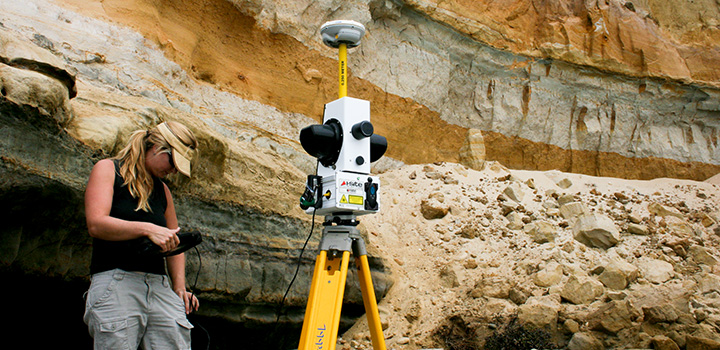
Humankind faces unprecedented changes in climate patterns, sea level, ocean acidity, ecosystems, and more. Scientists at Scripps Institution of Oceanography leverage expertise in marine and atmospheric science with engineering, policy, social science, and business to build interdisciplinary partnerships to advance climate change science and test adaptation solutions.
Resilience to Hazards

Scripps Institution of Oceanography researchers study natural hazards to help communities, agencies, and first responders be better prepared and more resilient. They include seismologists who investigate earthquakes; physical oceanographers who study threats posed by tsunamis and sea-level rise; meteorologists who work to improve forecasts for atmospheric rivers; and geoscientists who observe and predict wildfire risk.
Human Health and the Oceans

With infection and antibiotic resistance on the rise and land-based resources for new drugs showing little potential, modern medicine is looking to the sea. Scripps Institution of Oceanography researchers study human health, from bio-prospecting at the molecular level to analyzing threats from environmental pollutants and climate change.
Innovative Technology
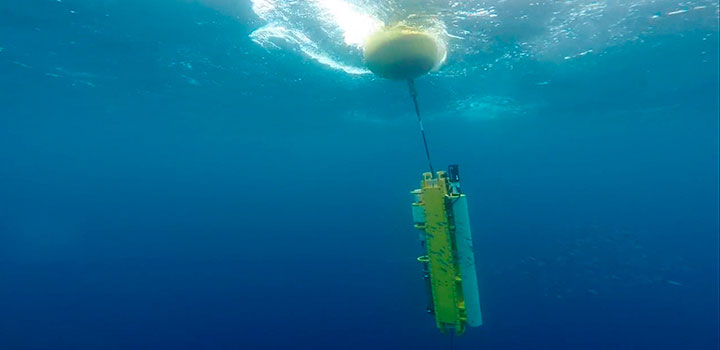
Scripps Institution of Oceanography researchers develop and operate long-term global and regional observing systems. These observations improve our understanding of environmental change and hazards such as earthquakes, tsunamis, erosion, hurricanes, wildfires, and harmful algal blooms. Scripps established groundbreaking programs such as the Keeling Curve, which set the stage for modern climate change research, and Argo, which tracks the changing state of the ocean.
Polar Science
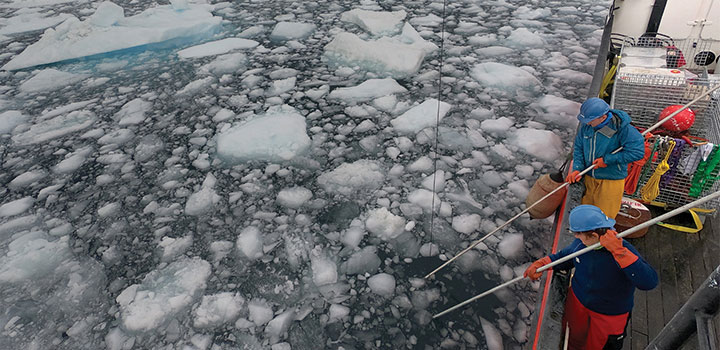
Rapid changes are taking place now in Earth’s polar regions. In the Arctic, sea ice cover is shrinking causing great ecological and climate impacts. Antarctic ice sheets are losing ice to the ocean, leading sea levels to rise. The Scripps Polar Center brings together scientists to investigate complex issues facing the polar regions and to train a new generation of researchers.
Biodiversity and Conservation
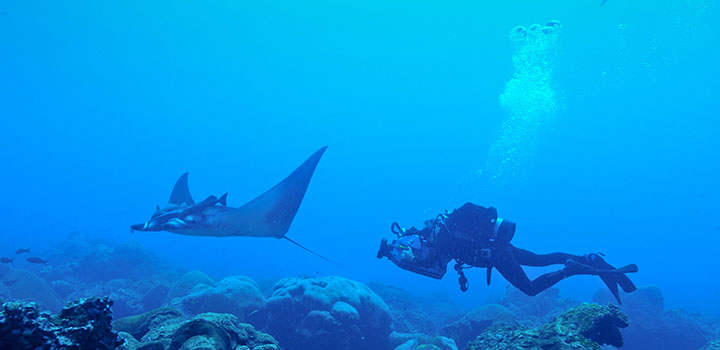
In the face of rapid global change, Scripps Oceanography promotes interdisciplinary research and educational approaches to maintain the integrity of ocean ecosystems and manage their use. Collaborating with other institutions, governments, and non-governmental organizations, Scripps aims to develop sophisticated, regionally appropriate strategies to prevent and reverse biodiversity collapse.
National Security
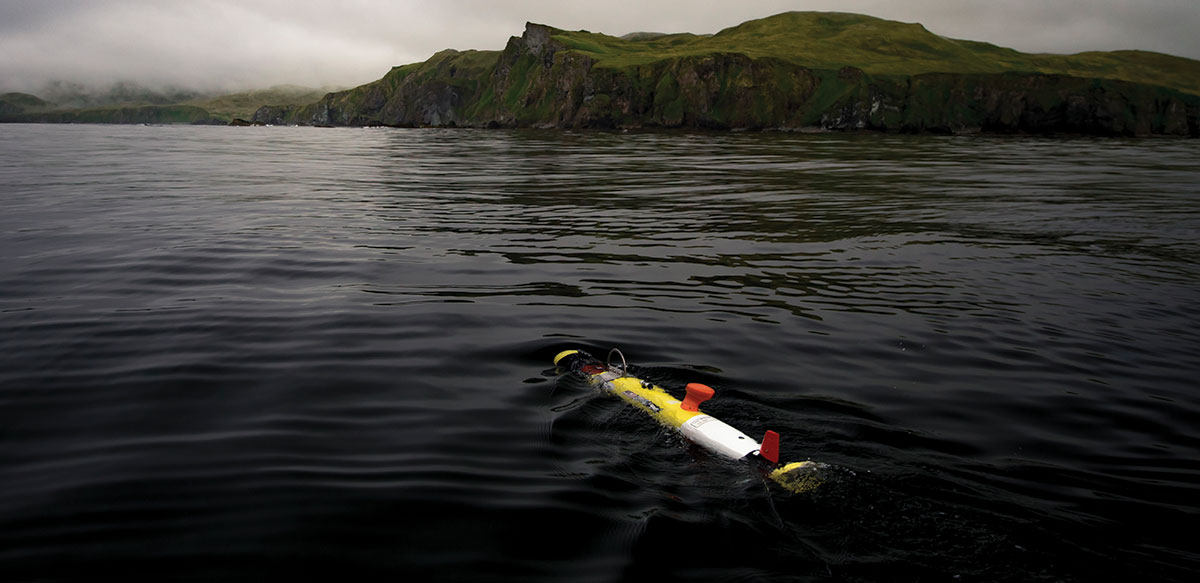
Scripps Oceanography has been an important contributor to U.S. Navy science and technology for more than 75 years, providing critical advantages, leading scientific inquiry vital to our nation’s defense, and developing new technologies that strengthen our security. Scripps researchers continue to advance ocean science and to maintain a competitive advantage.
Research Topics
Scripps Institution of Oceanography researchers work in a wide variety of fields in biology, earth science, and ocean and atmospheric science. A list of research topics and the affiliated academics, centers, and labs is below.
Biology
- Biological Impacts of Climate Change
- Chemical Ecology
- Coastal Ecology
- Conservation Ecology
- Coral Reef Biology and Ecology
- Deep-Sea Biology
- Developmental Biology of Marine Organisms
- Ecosystem Dynamics and Theory
- Environmental Toxicology
- Fisheries Biology and Management
- Genomics, Metagenomics, and Bioinformatics
- Invertebrate Zoology and Parasitology
- Life History Strategies and Behaviors
- Marine Benthic Ecology
- Marine Chemical Biology and Biotechnology
- Marine Mammal Biology
- Marine Microbiology
- Natural Products Chemistry
- Phylogenetics, Systematics and Biogeography
- Physiology of Marine Organisms
- Phytoplankton Biology and Algal Biofuels
- Plankton Ecology and Food-Web Interactions
- Polar Ecology
- Population and Community Ecology
- Population Genetics and Evolutionary Biology
Earth
- Acoustics and Infrasound
- Archaeology
- Biogeochemistry
- Coastal Processes
- Cryosphere and Polar Science
- Electromagnetism
- Geodesy and Lithospheric Deformation
- Geodynamics
- Geomagnetism, Paleomagnetism
- Geomorphology
- High Temperature Geochemistry
- Hydrogeology
- Instrumentation and Observational Networks
- Isotopic Geochemistry
- Low Temperature Geochemistry
- Marine, Atmospheric, and Aqueous Tracers
- Marine Chemistry
- Marine Geology and Geophysics
- Mathematical and Theoretical Geophysics
- Planetary Sciences and Meteoritics
- Numerical Modeling
- Paleoceanography and Paleoecology
- Remote Sensing
- Sedimentary Processes
- Seismology and Earthquake Physics
- Tectonics and Structural Geology
- Volcanology
Oceans and Atmosphere
- Applied Ocean Sciences
- Atmospheric Aerosols and Chemistry
- Autonomous Ocean Platforms and Global Observing Systems
- Biogeochemistry and Greenhouse Gases
- Climate Change and Health
- Climate Sciences
- Cloud Physics and Boundary Layer Processes
- Coastal Oceanography
- Environmental Justice
- Global Hydrography and Circulation
- Ice in the Climate System
- Internal Waves and Ocean Mixing
- Land Surface Hydrology
- Modeling and State Estimation of the Oceans, Atmosphere, and Climate
- Nearshore and Surf Zone Processes
- Nonlinear and Surface Waves
- Ocean Acidification
- Ocean Acoustics
- Ocean-Atmosphere Interactions
- Ocean Instrumentation and Technology
- Ocean Optics
- Past Climate Change
- Physical Oceanography
- Public Health and Epidemiology
- Remote Sensing and Satellite Oceanography
- Southern Ocean and High-Latitude Climate Studies
- Tropical Meteorology and Oceanography
- Upper Ocean and Submesoscale Processes
Centers and Programs
Scripps Institution of Oceanography is home to interdisciplinary scientific research centers and major programs.
Research Facilities
Scripps Oceanography is home to cutting-edge research facilities and scientific equipment.
Labs
Faculty and researchers operate important research labs that help understand and protect the planet.
Research Profiles
The institution is composed of world-class researchers who use their diverse backgrounds and talents to advance our understanding of the earth system and train the next generation of scientific and environmental leaders.